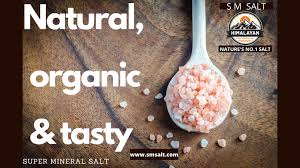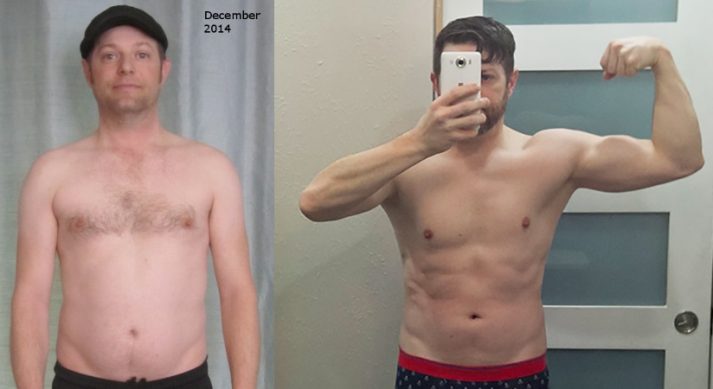
The Internet is a great resource for people who are trying to lose weight. You can find detailed information on diets in many books and online. Many of these resources also come at no cost. Some may charge, however, for information on specific diets. Some websites are commercial and you may need to pay to have them accessible. Several Web sites offer information on a specific diet, so make sure to research what they offer before deciding which one to use.
Nonprofessional patient-led groups for weight loss can be an invaluable addition to anyone's efforts to lose weight. These groups can provide semi-structured support, as well as discussion on common issues around weight management. These groups work well when they are used in addition to professional therapy. There are also community forums that offer advice and information about healthy eating and exercise. Forums, chat rooms, as well as other websites dedicated to this topic, are available.

Another great resource is the internet. They are free or very affordable. These services are a great choice for anyone who is looking to lose weight. There are many different programs to fit your needs. These services have been designed to be simple and convenient for you to use. These services also include some fantastic tools that will help you get started.
MOVE! website is another useful resource. This website aims to promote weight loss by providing educational handouts that explain the benefits and drawbacks of eating out. It has a variety diet plans available and supports those who have had surgery to lose weight. These resources are available nationally as well as locally. These resources can be very helpful when dining at restaurants. They also encourage people to take exercise and consider the psychological aspects of weight loss.
Online programs can be extremely helpful because they provide online resources to help individuals follow a weight-loss program. They're designed by bariatric physicians and can be extremely beneficial for patients. These programs require minimal staff involvement, unlike in-person ones. These resources can be used for self-improvement. You may be offered a money-back guarantee if they aren't satisfied. With online programs you can have them at your convenience whenever you're ready.

Weight loss resources are an essential part of any healthy lifestyle. With the right tips and information, you can become healthier and live a healthier life. Obesity and excess weight can cause serious health problems. If you eat a healthy diet, it's possible to stay fit and improve your health. There are many options for losing weight. Find the best program for you. It is crucial to adhere to guidelines for your life.
FAQ
Are There Any Benefits Of Doing Yoga?
Yoga has existed since ancient times. It has only recently been more popular. Yoga is very popular with celebrities as well as ordinary people who wish to be fit and healthy.
Yoga is great because it strengthens your muscles as well as stretches them. It calms you down and relaxes you.
The primary difference between yoga and other forms is the focus on breathing techniques in yoga.
To improve your balance and flexibility, you can try different poses.
What does butter do to men?
Butter is one of many good sources of saturated fats. This type fat is great for your skin and hair. It also helps you build stronger bones.
Vitamin K is also found in butter, which helps prevent bleeding from cuts or bruises. Vitamin K and vitamin C work together to prevent bruising.
Butter is also rich with minerals, such as calcium and phosphorous. These elements promote stronger bones and teeth.
However, butter has some drawbacks. Butter contains high levels of cholesterol. A few studies have shown that too much cholesterol can increase the risk of developing coronary disease.
Butter is high in saturatedfat, which contributes both to obesity, and raises cholesterol.
But if butter is a must, you can spread it on bread and not dip it in soups or salads. Bread absorbs less oil than pasta and potatoes.
Is it true that kidney stones can be caused by overeating protein?
Protein helps maintain healthy bone and tissue. Too much protein can cause calcium to be excreted through the urine. This can lead to kidney stones.
It's important to note that not everyone gets kidney stones after eating more than 2 grams of protein per kilogram (2.2 pounds) of body weight. People can eat large amounts of protein and not get kidney stones.
You can prevent kidney stones by watching your sodium consumption. Sodium helps regulate water balance in the kidneys. Too much sodium can lead to kidney stones.
You can also try reducing your protein intake if you get kidney stones. Protein accounts for about half the daily caloric requirement of most adults. It is possible to lose weight by cutting down on your intake of proteins.
If you do decide to eat more protein, don't go overboard. Try to eat less than 20% protein in total calories.
Statistics
- The PRS enabled risk stratification for overall prostate cancer and lethal disease with a four-fold difference between men in the highest and lowest quartiles (HR, 4.32; 95% confidence interval [CI], 3.16-5.89). (pubmed.ncbi.nlm.nih.gov)
- According to the American Academy of Dermatology (AAD), men over 50 are at a heightened risk of developing it. (healthline.com)
- Cardmembers earn 5% Back at Amazon.com with a Prime Credit Card. (amazon.com)
- Candidates and applicants must pass all four tests at 70% (minimum level) to graduate from Basic Deputy U.S. Marshal (BDUSM) Training. (usmarshals.gov)
- By John Thompson Take a whopping 38% off a set of PowerBlock Pros. (menshealth.com)
External Links
How To
What nutrients do men need each day?
Men require daily nutrition for healthy growth and development. Vitamins, minerals, vitamins, nutrients, carbohydrates, fats and fiber are all essential for the body.
Also, the male body requires certain nutrients at specific times during the day. Your body makes hormones, antibodies and enzymes when you are asleep. When you wake up, your body uses protein to repair damaged tissue and build muscles.
Your body stores extra energy as glycogen and breaks down fat at night. During this time, your body needs fewer calories but still needs sufficient nutrients. You might have an occasional snack during the night if your stomach is feeling hungry.
Working out requires adequate carbohydrate and protein intake. If you exercise hard, you might feel muscle soreness.
To avoid this, you need to eat carbs and proteins within two hours of training. Your body will use stored glycogen to produce glucose for energy.
Also, protein must be consumed immediately after your workouts. This will prevent muscle tissue from being damaged while you sleep.
Lactic acid is produced by the body during periods of intense exercise. It builds up in your bloodstream, which can lead to fatigue. You can avoid this by eating carbohydrates-rich foods like fruits and veggies.
Carbohydrates can give your body the energy it requires to recover from intense exercise.
In addition, you may want to include lean meats, fish, eggs, milk, cheese, yogurt, beans, nuts, and seeds into your diet.
These foods all contain high-quality proteins. Protein is important for muscle growth and repair. It provides amino acids that your body needs in order to produce sexhormones and testosterone.
You also need enough dietary fats to maintain good skin, hair, nails, and joints. Healthy men need between 20% and 35% of their total caloric intake from fat.
Fat helps keep your heart strong and protects against cancer. It is essential for proper brain function.
Vegetable oils, such as olive oil, sunflower oil or corn oil, soybean oil and peanut oil, can supply most of the fats you require.
These oils are high in monounsaturated fatty acids (MUFAs). MUFAs help lower cholesterol and reduce inflammation. They protect your cells and prevent damage from free radicals.
Saturated fats (SFAs), are found mainly in animal products such as meat, milk products, and butter. SFAs increase LDL ("bad") cholesterol, and increase triglycerides. They can also increase weight and reduce belly fat.
Polyunsaturated oils (PUFAs), are found in plant-based foods like nuts, seeds and vegetable oils. PUFAs help improve cardiovascular function, and lower inflammation. They also reduce blood sugar, cholesterol, and other inflammatory factors.
Erectile dysfunction can often be a problem for men who have low HDL ("good") levels of cholesterol. Saturated fats are a major source of bad cholesterol. This lowers good cholesterol.
Men who eat lots of red meat or pork can develop prostate problems. This is because these foods contain high amounts of nitrates. When heated, nitrates are converted to nitrosamines. These compounds cause cancer.
Most processed meats contain nitrites or other harmful chemicals. These chemicals should be avoided.
The American Heart Association recommends that you limit your intake of red meat to 2 per week. Instead, choose poultry or fish, beans, tofu and whole grain bread.